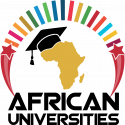- ABOUT
arrow_drop_down
- SDGsUni
arrow_drop_down
- TEAM
arrow_drop_down
- WASD
arrow_drop_down
- Global Network
arrow_drop_down
- Regional Coordinators
arrow_drop_down
- Country Coordinators
arrow_drop_down
- Country Coordinators
- Volunteers
- Regional Coordinators
- Executive Team
arrow_drop_down
- Operation
arrow_drop_down
- Coordinators
arrow_drop_down
- Coordinators
- Publishing
arrow_drop_down
- Operation
- WASD
- CONTACT US
- SDGsUni
- JOIN
arrow_drop_down
- Join SDGsUNI
arrow_drop_down
- Membership
arrow_drop_down
- Join SDGsUNI
- UNIVERSITIES
arrow_drop_down
- Search All
arrow_drop_down
- Search By SDGs
- Search by Region
arrow_drop_down
- AFRICA
- ARAB
arrow_drop_down
- ASIA
- CARIBBEAN
- EUROPE
- ISLAMIC WORLD
- LATIN AMERICA
- MENA
- NORTH AMERICA
- OCEANIA
- Search By Association
arrow_drop_down
- Search By Subject
- Search All
- TEACHING
arrow_drop_down
- Search All
arrow_drop_down
- Courses By SDGs
- Courses By Region
arrow_drop_down
- Search By Association
arrow_drop_down
- Courses By Subject
- Search All
- RESEARCH
arrow_drop_down
- CENTERS
arrow_drop_down
- Search All
arrow_drop_down
- Search By SDGs
- Search by Region
arrow_drop_down
- Search by Subject
- Search By Association
arrow_drop_down
- Search All
- PUBLICATIONS
arrow_drop_down
- Search All
arrow_drop_down
- Search By SDGs
- Search by Region
arrow_drop_down
- Search By Association
arrow_drop_down
- Search by Subject
- Search All
- CENTERS
- SDGs HUBs
arrow_drop_down
- WHO’sWHO
arrow_drop_down
- Search All
arrow_drop_down
- Search By SDGs
- Search By Region
arrow_drop_down
- Search By Subject
- Search By Association
arrow_drop_down
- Search All
- EVENTS
arrow_drop_down
- Search All
arrow_drop_down
- Search By SDGs
- Search By Region
arrow_drop_down
- Search by Subject
- Search By Association
arrow_drop_down
- Research Track
- Search All
- IMPACT
arrow_drop_down
- Search All
arrow_drop_down
- Search By Region
arrow_drop_down
- Search By Association
arrow_drop_down
- Search By Subject
- Search All
- MAPS
arrow_drop_down
- PARTNERSHIPS
- TRAINING

The World Association for Sustainable Development (WASD) is very pleased to welcome you to its Sustainable Development Goals (SDGs) Universities Initiative (SDGsUNi). SDGsUNi aims to bring together universities and research institutions from across the world in a global forum to collaborate and reconnect with the discourse of Sustainable Development (SD). SDGsUNi will therefore help universities and research institutions to play a critical role enabling their countries reap the benefits form the global growth in the knowledge economy particularly for the country’s Digital Natives (Youth).
SDGsUNi aims to critically examine a number of issues relating to the role and relevance of universities and research institutions to the contemporary discourse of countries’ sustainable inclusive knowledge-based development such as the role of universities in supporting and enhancing the process of economic and social development in their country; identify all major obstacles that universities face in their countries including any governments components and most importantly how can these obstacles best be overcome; and what is the new role(s) of universities in the post Covid-19 era.
SDGsUNi also aims to improve the research within universities to help achieve the United Nations Agenda 2030 and its 17 SDGs by addressing the significant demand for evidence-based research across the world. SDGsUNi is therefore aims to provide practical recommendations and actions to help transform the way universities conduct and use research to achieve the SDGs, and the way universities access and benefit from the global data freely available for use by leading international organizations such as the UN, World Bank, etc.
SDGsUNi will work closely with universities to address the following key issues in their contribution to their countries’ efforts to achieve the Agenda 2030 and its SDGs: how universities see the role of STI in service of the 2030 Agenda?; how do universities reflect the SDGs in their own research activities?; and do universities believe that the HE system in their countries is properly using scientific research in finding solutions to the country’s problems?
Since the Rio summit in 1992, Sustainable Development is becoming increasingly a major concern for both Developed and Developing Countries (DCs). Yet, translating the principles of SD into effective economic and environmental policies seems to be a major challenge for all countries. In the post Covid-19 era of global skills and knowledge race, universities cannot fail to realise, accept and accomplish their natural and ascribed roles (also remotely) as a strategic agent for national development to achieve the UN Agenda 2030 and its 17 SDGs. Universities must therefore confront new realities rapidly manifesting themselves in a diversely complex and fast-changing world. Business as usual will not suffice. Universities need to be expansively re-focused in order to become more sensitive and responsive to its mission of developing graduates who, in addition to conventional graduate training, are also able to help their countries achieve the Agenda 2030 and its 17 SDGs.














